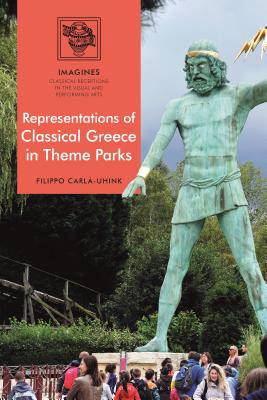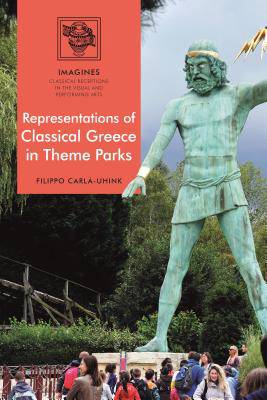
Bedankt voor het vertrouwen het afgelopen jaar! Om jou te bedanken bieden we GRATIS verzending (in België) aan op alles gedurende de hele maand januari.
- Afhalen na 1 uur in een winkel met voorraad
- In januari gratis thuislevering in België
- Ruim aanbod met 7 miljoen producten
Bedankt voor het vertrouwen het afgelopen jaar! Om jou te bedanken bieden we GRATIS verzending (in België) aan op alles gedurende de hele maand januari.
- Afhalen na 1 uur in een winkel met voorraad
- In januari gratis thuislevering in België
- Ruim aanbod met 7 miljoen producten
Zoeken
Omschrijving
Theme park studies is a growing field in social and cultural studies. Nonetheless, until now little attention has been dedicated to the choice of the themes represented in the parks and the strategies of their representation. This is particularly interesting when the theme is a historical one, for example ancient Greece. Which elements of classical Greece find their way into a theme park and how are they chosen and represented? What is the "entertainment" element in ancient Greek history, culture and myth, which allows its presence in commercial structures aiming to people's fun? How does the representation of Greece change against different cultural backgrounds, e.g. in different European countries, in the USA, in China?
This book frames a discussion of these representations within the current debates about immersive spaces, uses of history and postmodern aesthetics, and analyses how ancient Greece has been represented and made "enjoyable" in seven different theme parks across the world, providing an original and ground-breaking contribution to theme park studies and classical reception.
This book frames a discussion of these representations within the current debates about immersive spaces, uses of history and postmodern aesthetics, and analyses how ancient Greece has been represented and made "enjoyable" in seven different theme parks across the world, providing an original and ground-breaking contribution to theme park studies and classical reception.
Specificaties
Betrokkenen
- Auteur(s):
- Uitgeverij:
Inhoud
- Aantal bladzijden:
- 280
- Taal:
- Engels
- Reeks:
Eigenschappen
- Productcode (EAN):
- 9781474297844
- Verschijningsdatum:
- 16/04/2020
- Uitvoering:
- Hardcover
- Formaat:
- Genaaid
- Afmetingen:
- 156 mm x 234 mm
- Gewicht:
- 557 g

Alleen bij Standaard Boekhandel
+ 457 punten op je klantenkaart van Standaard Boekhandel
Beoordelingen
We publiceren alleen reviews die voldoen aan de voorwaarden voor reviews. Bekijk onze voorwaarden voor reviews.









